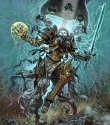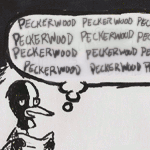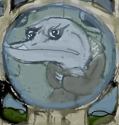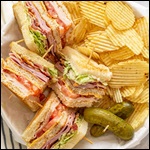|
SeanBeansShako posted:Basically this, I made it sounds more exciting than it was. Enh. The UK didn't attend 1989, but neither the UK nor the US attended 1991 because they were kinda busy with that whole Gulf War thing... EDIT: From an unbiased viewpoint, how reasonable is that long list of Swedish complaints about British tactics? I'm iffy on some of it: like, I can see why you might want the commander to have overall control over whether the tank shoots at a target or not, instead of having the gunner engage independently, because the commander should have a better view of the overall situation and a shot at the wrong time might ruin a perfectly good ambush. Fangz fucked around with this message at 23:51 on Apr 1, 2015 |
|
|
|

|
| # ? Apr 28, 2024 19:32 |
Fangz posted:Enh. The UK didn't attend 1989, but neither the UK nor the US attended 1991 because they were kinda busy with that whole Gulf War thing... Oh yeah, that.
|
|
|
|
|
Fangz posted:From an unbiased viewpoint, how reasonable is that long list of Swedish complaints about British tactics? I'm iffy on some of it: like, I can see why you might want the commander to have overall control over whether the tank shoots at a target or not, instead of having the gunner engage independently, because the commander should have a better view of the overall situation and a shot at the wrong time might ruin a perfectly good ambush. I'd expect the crew to be briefed on that sort of thing. Or that training + coms would help prevent such a thing from occurring.
|
|
|
|
PittTheElder posted:Have you posted about that one here before? Because I want to know more. 7 July, 1626 George Schmaliner and Lucas Paz, with many other soldiers, arrive at the quarters the Captain-Lieutenant shared with several other officers, including a Führer and a Fendrich, who are mentioned in the testimony. (The housing situation is extremely tight. Even relatively senior officers are crammed haphazardly into odd corners of buildings, which belong, of course, to the Italian people who actually live there, and who are rarely mentioned. Just imagine that every incident I describe has an audience.) Serious concerns or not, this is all still rather casual; there's no formal process or anything, the Captain-Lieutenant just comes out of the door and says "What do you all want here?" Lucas Paz stepped forward and said that the enterpriser ("Impresarius," "financial organizer") who signed them up "had said that we would be given 13 Sold a day but we are now receiving only 10, and we would therefore like to know where the other three Sold are and why it should not be coming to us." They ask the Führer to come outside to talk with them. As he and the Führer came out together, the lads were leaving, but George Schmaliner spoke to them with these words: "Now where are you going to? Here is the Führer, tell him what we have to say to him." At which Paz stepped up and said, "Herr Führer, since the Corporals and Gefreyters have asked for what is theirs, it is nothing more than right that we uphold what is ours." The Impresarius had told them when they signed up that they would receive 3 Sold/day more than the 2 batzen/day normally given to mercenaries, which they were not receiving, and they came here to talk to the officers because they wanted to know more about that. They wanted to receive as much as the Gefreyters had. Here, they may be alluding to a previous pay dispute that, since it did not result in an execution, was not recorded in the trial records. Paz and Schmaliner were both condemned to death; Schmaliner since he had called the Führer outside and Paz since he had brought him out. There's a thing in the Articles of War about being content with your pay as it stands, which they had disobeyed. Paz was pardoned but Schmaliner was executed on 9 Jul. Edit: Things are bad financially in the Mansfeld Regiment and getting worse by the month--concomitantly, sentences are getting tougher and tougher. Hieronymus Sebastian Schutze got seven days in chains for shooting a guy accidentally; a year and a half later some guy got six months in chains for the same drat thing. HEY GUNS fucked around with this message at 00:14 on Apr 2, 2015 |
|
|
|
HEY GAL posted:There's a thing in the Articles of War about being content with your pay as it stands, which they had disobeyed. Catch 22 has always existed.
|
|
|
|
Arquinsiel posted:"Well, it looks like by complaining about that breach of regs you breached some other regs. To the gallows with you!" Edit: Usually, testimonies and trial documents are pretty wordy and contain a bunch of random poo poo and half-related witness statements, as well as allegations from the plaintiff (if it's a dispute) or the provost (if a dude is just getting accused of a thing) and counter-allegations from the defendant, but not this. This document was very brief. You can stab your friends all you want and you will probably get pardoned, but breathe a word about the bottom line and it's your rear end. HEY GUNS fucked around with this message at 00:36 on Apr 2, 2015 |
|
|
|
Fangz posted:EDIT: I have heard more than enough stories about the British Army loving around on exercise in Germany (someone really needs to write a book about Wolfgang, the legendary bratwurst man of Soltau) to believe everything they say as long as it contains plenty of cheap shots like "lots of radio transmission, but no orders". (The canonical Wolfgang story got posted by someone a while ago on ARRSE, and it goes like this, courtesy of an incredibly confused subaltern. I've added a small amount of punctuation.) Zulu_w on ARRSE posted:As a brand new Troop Commander [in the Royal Corps of Transport] on my first exercise [at Soltau], on the first night: move into a harbour area, everything seemed to be going swimmingly. Good light discipline, no bumps, total silence, less the roar of the Drops. Wolfgang was a bloke with a van who worked out not long after the start of the use of Soltau as a training area that there were a lot of cold, hungry, thirsty blokes knocking around the place on exercises who'd probably appreciate hot food and cold beer; and furthermore that their superiors were not immune to cold and hunger and thirst, and they could be easily bribed with free food to tell him exactly what the exercise plans were and where everyone was going to be. (For some strange reason, his presence never seemed to appear in any official reports...) Trin Tragula fucked around with this message at 00:45 on Apr 2, 2015 |
|
|
Fangz posted:EDIT: "OK men we're advancing to contact. If you see armour in your sights, open fire. If you see a ford transit, let me know and I'll decide what to do" seems pretty straight-forward. It isn't like the crew are communicating over IRC or some poo poo.
|
|
|
|
|
PittTheElder posted:While googling this contest (the Canadian Army Trophy presumably?) I learned that the Dutch army has a union? The Norwegian Army has a couple unions too, and they're amazing. Im in the one for lower ranked officers and noncoms and they saved my rear end from being fired once when I had a major beef with my unit commander. They're lawyers are amazing, usually former servicemen and they take care of you in an environment that of its very nature is given to authoritarian power plays and little to no tradition of compromise. There are limits of course. Soldiers can't go on strike, for one thing and that limits the unions power somewhat.
|
|
|
|
Fangz posted:Enh. The UK didn't attend 1989, but neither the UK nor the US attended 1991 because they were kinda busy with that whole Gulf War thing... This is Sweden as well, where the fighting would probably be taking place in forests, and the target would be Russian tanks. Its probably as simple as "Whoever sees a tank first, shoot it"
|
|
|
|
http://baloogancampaign.com/2015/04/01/name-german-unit/ This is a neat article that comsubpac (one of my buddies online) was kind enough to write for my site. Its about a bit of Germany post-war history focusing on how the German military designates units.
|
|
|
|
Slavvy posted:"OK men we're advancing to contact. If you see armour in your sights, open fire. If you see a ford transit, let me know and I'll decide what to do" seems pretty straight-forward. It isn't like the crew are communicating over IRC or some poo poo. "That ford transit looked like a tank!"
|
|
|
|
I recall some tank gunner writing that in the heat of battle, you don't see a tank or a truck, you see a target and you want to shoot it. It takes experience and discipline to determine that it's a Ford Transit and not in fact an enemy tank, and the British don't seem to have an excess of either.
|
|
|
|
FAUXTON posted:Same, to reiterate Wikipedia says that this is the case of the 75th ranger regiment unit, at least spiritually, but I don't know what the distinction if any there is between them and the Rangers we all know about. In fact, there is an article on the US Rangers, 75th Ranger regiment, AND 75th Infantry Regiment. Reason I was wondering what their different roles were is because someone said that the Delta Force didn't succeed at their job (don't think I ever got an answer as to what that was) and I was wondering what their respective roles would be. I know Green Berets did training of Montagnard peoples in Vietnam, Rangers I always figured were an elite recon group, I was under the impression that ST6 was anti-terrorism/hostage-situation group, etc. I haven't read that big effort post yet but he wasn't lying when he said this is a huge topic and I suspect there is a shitton of overlap.
|
|
|
|
I was wondering if any of you know of a good book in english about Japanese kamikaze pilots in WWII? Preferably something written by one (obviously someone who never actually had the chance to carry out his mission) or at least using good sources. I've read a lot about the use of kamikazes, the motivation from a political standpoint, tactics, training and so forth but I know almost nothing about the men themselves and how they felt about their mission.
|
|
|
|
Frostwerks posted:Wikipedia says that this is the case of the 75th ranger regiment unit, at least spiritually, but I don't know what the distinction if any there is between them and the Rangers we all know about. In fact, there is an article on the US Rangers, 75th Ranger regiment, AND 75th Infantry Regiment. Reason I was wondering what their different roles were is because someone said that the Delta Force didn't succeed at their job (don't think I ever got an answer as to what that was) and I was wondering what their respective roles would be. I know Green Berets did training of Montagnard peoples in Vietnam, Rangers I always figured were an elite recon group, I was under the impression that ST6 was anti-terrorism/hostage-situation group, etc. I haven't read that big effort post yet but he wasn't lying when he said this is a huge topic and I suspect there is a shitton of overlap. As you note, there have been several "Ranger" units in American history. The first being Rogers' Rangers, the famous light infantry raiders of the French and Indian War. After that, several ad hoc units dubbed themselves "Rangers," most notably Knowlton's Rangers during the American Revolutionary War or Mosby's Partisan Rangers during the Civil War. Most of these units were lightly-armed infantry or cavalry who fought as skirmishers or guerillas. Under the urging of Lucian Truscott, the US Army created a Commando-style unit in 1942. This became the 1st Ranger Battalion (there would eventually be six Ranger Battalions). The exact origins of the "Ranger" name is unclear. Some people think the Rangers' first commander, William O. Darby, got the name after watching the film Northwest Passage, which featured Rogers' Rangers. Others credit Lucian Truscott with picking the name. The US Army Rangers during WWII often fought as individual battalions, but they were often grouped into short-lived groups for specific operations. The 6615th Ranger Force (1st, 3rd, and 4th Ranger Battalions, plus the 509th Parachute Infantry Battalion) fought at Anzio and were nearly obliterated. The regiment-sized Ranger Assault Group that landed on Omaha Beach and Point du Hoc consisted of elements of 2nd and 5th Ranger Battalions. After WWII, the Ranger battalions were disbanded, although the Ranger concept was revived during the Korean War. The US Army raised several independent companies during the Korean War, primarily for independent long-range reconnaissance with company-sized units. Some Ranger companies were drawn mostly from volunteers from rear-area support units, which limited the effectiveness of some Ranger units. For the most part, however, they did effective service in their intended role. After the Korean War, the Rangers were again disbanded In Vietnam, the Ranger lineage was revive once more. This time, the 75th Infantry Regiment acted as the parent unit for a series of largely independent companies (originally the LRP (Long Range Patrol) companies that many regiment in Vietnam had organized). Each company was attached to a Corps, Division, or Brigade deployed in Vietnam. These companies would send out small 5-6 patrols to gather intelligence about NVA and VC activities in their area of operations. In 1974, the 1st Ranger Battalion was revived, this time as an airborne light infantry units. Over the years, two more Ranger battalions (2nd and 3rd) and an HQ Company were added until the 75th Ranger Regiment was formally created in 1986. This is the modern iteration of the Rangers. The modern Rangers have many missions. They are a well-trained airborne light infantry force, which means that they can be used for relatively-large scale missions like seizing airfields. But they can also be used in special operations or in support of special operations. During Iraq and Afghanistan, Rangers have frequently been used as blocking forces or QRF troops in support of American and coalition special operators/
|
|
|
|
Bacarruda posted:The modern Rangers have many missions. They are a well-trained airborne light infantry force, which means that they can be used for relatively-large scale missions like seizing airfields. But they can also be used in special operations or in support of special operations. During Iraq and Afghanistan, Rangers have frequently been used as blocking forces or QRF troops in support of American and coalition special operators/
|
|
|
|
AceRimmer posted:Were there any special forces units in WW2 that were spared being misused as elite regular infantry? I know that the Branderburgers wound up being used in "fire brigades" on the Eastern Front and similar stuff happened to American Rangers too. I wouldn't say "misused." The vast majority of special operations troops in WWII were for all intents and purposes highly-trained light infantry. Yes, they could do specialized tasks like scaling the cliffs at Point du Hoc and yes, they could (and did) fight in small units. However, by 1942-1943, units like the Commandos or the Rangers were meant for (and used) to fight in relatively large company- or battalion-sized engagements. Consider the 1st Ranger Battalion at El Guettar, the 6th Rangers at Cabanatuan, or the Commando's Vaagsoy raid, both of which were fought by hundreds or thousands of men using light infantry tactics. "Special forces" is also an extremely broad term. I generally associate it with any form of unconventional warfare unit. By nature, unconventional warfare encompasses a great deal of roles and capabilites. There's a strong case to be made that the OSS's Jedburgh teams were "special forces," even if they had a very different mission and set of skills from say, No. 4 Commando.
|
|
|
|
Trin Tragula posted:*IIRC there was a French prototype fighter that carried a machine gun and scored a few kills back in August 1914; it got around the shooting-through-the-propellor problem by using a pusher design, but quickly bumped up against the wider problem of how any pusher plane that isn't the Wright Flyer is absolutely shithouse compared to a puller. Even before the balloon went up the Royal Naval Air Service had been assigned to air defense duties. Admiralty telegram to C-in-C Nore, Admiral of Patrols, and Inspecting Captain of Aircraft, 29 July 1914 posted:Inform I.C.A. for the present the duties of Aircraft are to be confined to affording protection against hostile aircraft. All very Fighter Command, isn't it? The pilots weren't expected to be throwing rocks. Vickers was gearing up for series production of the world's first purpose-built fighter aircraft and the RNAS had been experimenting with arming aircraft with everything from bombs to old 14" torpedoes (obsolete for use by the fleet but still able to punch a nice hole in a ship) to an early kind of recoil-less rifle. Vincent Van Goatse fucked around with this message at 07:30 on Apr 2, 2015 |
|
|
|
AceRimmer posted:Were there any special forces units in WW2 that were spared being misused as elite regular infantry? I know that the Branderburgers wound up being used in "fire brigades" on the Eastern Front and similar stuff happened to American Rangers too. Rangers were intended to be elite light infantry in WW2, so I wouldn't consider them to have been misused in that capacity. Even today, US Rangers are primarily highly motivated, well-trained, airborne light infantry - capable of acting flexibly and independently. They're soldiers that can be put into bad situations with the confidence that they will perform competently and won't break. That isn't the same as, say, a JSOC special operations team, which has highly specialized small unit skills that would be inappropriate and/or insufficient to perform the company-level missions that Rangers are called on to do.
|
|
|
|
Bacarruda posted:That's a huge subject. What specifically would you like to know about? You are, quite literally, the best. I would really like to hear little known stories about Spetznaz and British skullduggery, for one.
|
|
|
|
100 Years Ago The French planning effort for Second Artois steps up a gear, there's developments aplenty (and plenty of venereal diseases) in Africa, something is going off around Van in Armenia, and we get confirmation that the Friendly Feldwebel and Herbert Sulzbach are in exactly the same place and may well have crossed paths or shared a cigarette or something. There's also a cut-out-and-sent coupon in the paper to support David Lloyd-George's calls for a temperance movement; and in a war filled with ridiculously hyperbolic statements from the press, there's one on the coupon that's surely going to take some beating.
|
|
|
|
Bacarruda posted:"Special forces" is also an extremely broad term. I generally associate it with any form of unconventional warfare unit. By nature, unconventional warfare encompasses a great deal of roles and capabilites. There's a strong case to be made that the OSS's Jedburgh teams were "special forces," See, I would consider that a mission by definition to be that suited for Special Forces alone honestly lol. Frostwerks fucked around with this message at 13:58 on Apr 2, 2015 |
|
|
|
The Russian case is interesting as apparently you have something like Spetsnaz growing out of the ad-hoc Eastern front stuff (where a bunch of guys sneak over and kidnap a sentry to get intel).
|
|
|
|
Bacarruda posted:That's a huge subject. What specifically would you like to know about? I am literally riveted to this. Sincerely interested in better understanding SF units.
|
|
|
|
Raenir Salazar posted:The Russian case is interesting as apparently you have something like Spetsnaz growing out of the ad-hoc Eastern front stuff (where a bunch of guys sneak over and kidnap a sentry to get intel). I wouldn't say it was ad hoc, these duties were performed by dedicated scouts.
|
|
|
|
I just like imagining that Rangers being used as blocking forces for Special Forces are there to shoot the operators if they run away
|
|
|
|
Rockopolis posted:I just like imagining that Rangers being used as blocking forces for Special Forces are there to shoot the operators if they run away Hahaha. "No cowards in this man's army Rainbow Six."
|
|
|
|
Baloogan posted:http://baloogancampaign.com/2015/04/01/name-german-unit/ Good as an initial primer at the very least! Might it also be cool to include some of the later changes in Heer nomenclature/organization though, like the abortive Jägerdivisionen of Heeresstruktur III, fourth (composite) battalions in Struktur IV, and maybe the peace-/wartime distribution accross 3/5 Corps?
|
|
|
|
Bacarruda posted:I wouldn't say "misused." The vast majority of special operations troops in WWII were for all intents and purposes highly-trained light infantry. Yes, they could do specialized tasks like scaling the cliffs at Point du Hoc and yes, they could (and did) fight in small units. However, by 1942-1943, units like the Commandos or the Rangers were meant for (and used) to fight in relatively large company- or battalion-sized engagements. Consider the 1st Ranger Battalion at El Guettar, the 6th Rangers at Cabanatuan, or the Commando's Vaagsoy raid, both of which were fought by hundreds or thousands of men using light infantry tactics. Ninja edit: I've also seen that decision blamed for the failure of Market Garden though, despite all evidence to the contrary that the same type of Op was impossible there.
|
|
|
|
More about the BAOR. The last part of the trials was conducted as a major field exercise. The BLUFOR had Chieftains only, the OPFOR mixed Chieftains and S-tanks. The OPFOR "won", but the Swedish observers dismiss the results as "highly questionable". Some observations: quote:The BLUFOR tank units appear very unprofessional. Uses unsuitable formations, roads and combat positions. In general, they appear to think they are invulnerable. Tank commanders and loaders stand very far up in their hatches. Drivers have hatches open and drive with their head above the edge. quote:British tank crews always carry a lot of baggage, both combat and non-combat equipment (cooking equipment, food, tents etc), on and/or in their tanks. Unlike our crews, they are completely independent of separate cooking units and baggage trains. This meant that the space available in the S-tank was far too small for their equipment. On the British vehicles: quote:The Chieftain tank: TheFluff fucked around with this message at 21:17 on Apr 2, 2015 |
|
|
TheFluff posted:The reliability seems surprisingly low. During the exercises, the number of tanks that had to drop out due to mechanical trouble was relatively high. Mostly, it's the engine that is the problem. As soon as a Chieftain stops, after a little while there's always an oil slick on the ground or garage floor. The gun stabilization also fails frequently. The accuracy of the contra-rotating feature in the commander's observation cupola is very low. It is almost never used by the Brits. The tank's speed over terrain does not seem to be superior to that of the S-tank. The commander's observation equipment is very good. I laughed aloud at this because it's so achingly british, like the tanks were made by leyland or something. 
|
|
|
|
|
TheFluff posted:More about the BAOR. Hahahahahha "Basically it's difficult to differentiate between the comparative merits of these vehicles and the complete incompetency of the people using them!"
|
|
|
|
TheFluff posted:On the British vehicles:
|
|
|
|
As I understand it those loving things are unreliable as well but perhaps their users maintained them better in this case.
|
|
|
|
|
Arquinsiel posted:Any more on the Scorpion specifically? I've got a soft spot in my heart for it after building the utterly dire Airfix kit as a wee nipper, and it's the only tank we've got in service here these days. Or basically ever... Not really, sorry. The paragraph continues with mentioning how the Scorpion is supposed to replace various armored cars in some places but there's nothing more about the vehicle itself. Disinterested posted:As I understand it those loving things are unreliable as well but perhaps their users maintained them better in this case. This was in summer 1973, so the Scorpion was brand new and being introduced at the time. Any reliability problems had probably not showed themselves too much yet. TheFluff fucked around with this message at 21:22 on Apr 2, 2015 |
|
|
|
No worries. Still an awesome read.
|
|
|
|
Posted the full report here: http://tanks.mod16.org/2015/04/02/report-from-british-strv-103-trials-at-the-baor-1973/ In Swedish, unfortunately, but I posted the translated bits too. Should I expect hate mail from angry Brits?
|
|
|
|
Slavvy posted:I laughed aloud at this because it's so achingly british, like the tanks were made by leyland or something. They were.
|
|
|
|

|
| # ? Apr 28, 2024 19:32 |
TheFluff posted:Posted the full report here: http://tanks.mod16.org/2015/04/02/report-from-british-strv-103-trials-at-the-baor-1973/ Eh it's commonly accepted that British military competence specialises around letting everything go to poo poo and then pulling it back together again after.
|
|
|
|

































